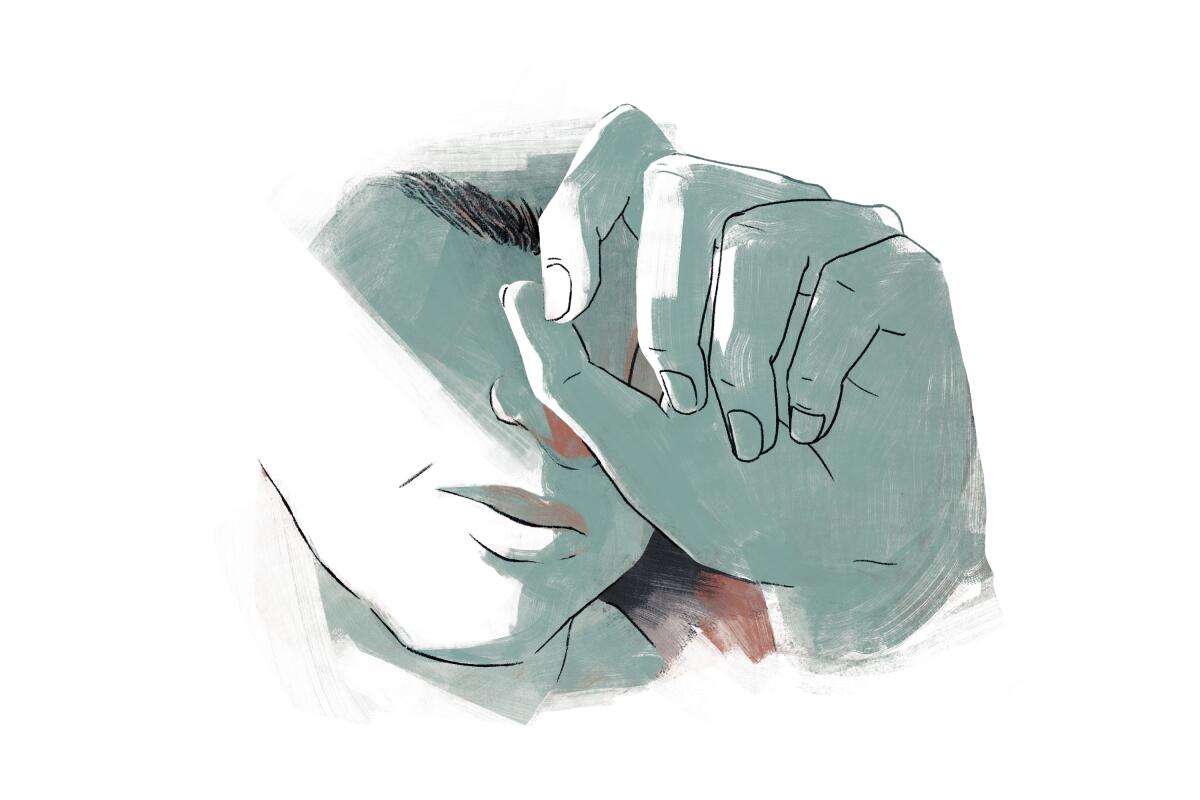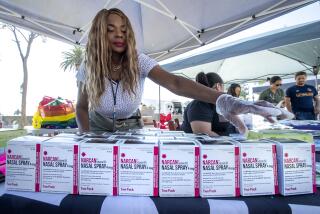If you’re living with a drug or mental health problem, here’s where to look for help

- Share via
Fatal overdoses in the U.S. fell for the first time in five years in 2023, according to preliminary estimates recently released by the Centers for Disease Control and Prevention, but UCLA researcher Joseph Friedman warns that the new findings should not be interpreted to mean that the nation’s drug and mental health crises are abating.
Friedman has analyzed “deaths of despair” that result from overdose, suicide and liver disease due to alcoholism and found that while death rates for white Americans have dipped, rates have risen in recent years among people of color in the U.S., especially among Native and Black Americans. Illegal opioids such as fentanyl have ravaged Black and low-income communities in Los Angeles.
While it’s difficult to pinpoint the exact reasons behind substance abuse or suicide, Friedman as well as other experts in addiction medicine and mental health say racial inequality, economic distress and historical trauma have aggravated those problems in marginalized communities.
If you or someone you know needs immediate help for a mental health, substance-use or suicidal crisis, call or text 988, or chat online by visiting the suicide and crisis line’s website. For mental health resources and referrals, call the Los Angeles County Department of Mental Health’s Help Line 24/7 at (800) 854-7771.
Here are other organizations that offer information, counseling and support services:
Many believe white Americans suffer higher rates of premature death from addiction, overdoses and mental health. Researchers say that’s false.
Nakeya Fields, a licensed clinical social worker in Pasadena, founded the Black Mental Health Task Force, a coalition that brings together mental health professionals, clients, nonprofits, community organizations, educators and others in California to raise awareness about mental wellness. Her Therapeutic Play Foundation offers activities designed to improve resilience and coping skills through creative arts, play and sports. It provides individual, couples, group and family therapy for Black, Latinx, LGBTQ+ and other members of marginalized populations.
The American Indian Counseling Center, a division of the Los Angeles County Mental Health Department, offers crisis intervention, 24/7 intensive mental health services and counseling for all ages, as well as physician consultations for medications and referrals to culturally relevant support groups. Call (562) 402-0677 and ask to speak with the on-duty worker.
United American Indian Involvement’s behavioral health program provides outpatient substance use disorder treatment and mental health services to American Indians and Alaska Natives living throughout Los Angeles County. Visit the website or call (213) 202-3970.
Melanin and Mental Health offers an online network of Black and brown mental healthcare providers that is searchable by geographic area, issue type and treatment sought. It’s also possible to filter results by therapists’ racial background and specialty, as well as by insurance carrier.
The Black Mental Health Alliance offers confidential referrals to culturally competent mental health professionals who are in its database of licensed therapists.
Painted Brain advocates for mental wellness in underserved L.A. communities by offering self-care, relaxation and therapeutic art and play sessions, support groups and trainings for mental health professionals. As part of its peer-led model, many of the staff have experienced mental health issues themselves. Its community center and art space is located at 5980 W. Pico Blvd. in Los Angeles.
The Los Angeles LGBT Center offers individual, couples, family, group therapy and psychiatric care, as well as support for people struggling with substance use. The center has locations in West Hollywood, at Mi Centro in East L.A., at its Trans Wellness Center near MacArthur Park and in South L.A.’s Leimert Park neighborhood.
The Community Health Project Los Angeles provides services to people who use drugs by way of a harm-reduction approach that emphasizes offering clean needles as well as education on how to respond to an overdose.








